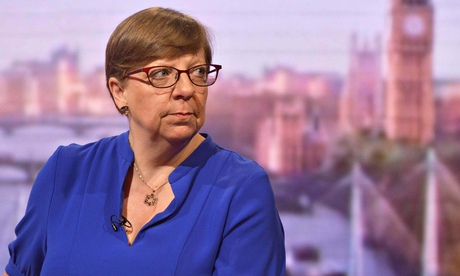
There are three things to be said about the failed prosecution of Dr Dhanuson Dharmasena on a charge of committing female genital mutilation, a trial that concluded after the jury deliberated for a mere 30 minutes on Wednesday. First, it was a prosecution that should never have been pursued. By being so wide of the mark, it will probably damage the campaign against FGM and make a future prosecution less likely. It has also damaged the director of public prosecutions, Alison Saunders. It will make her admirable focus on the voiceless and the vulnerable that bit harder to pursue.
But it was not, whatever the critics say, a show trial. Three times the judge was invited to throw out the prosecution, and each time he decided there was sufficient evidence to pursue the case and that it was in the public interest to do so. Perhaps no one felt able to end the attempt to get the first conviction for a crime that may have many as 60,000 victims in Britain alone. And then, because the operation is normally done to young girls usually during a trip abroad, and with the complicity of the family, it was never going to be easy. Rightly, campaigners put most of their effort into raising awareness and educating potential victims and their parents by working in schools and vulnerable communities. Yet although a successful prosecution would always be a complex and uncertain process, it was a glittering prize.
It is little more than a year since Ms Saunders became the first DPP who had made a career largely as a manager in the Crown Prosecution Service, where she took a particular interest in the vulnerable. She has taken some brave decisions, and some very contentious ones. She has been criticised for prosecuting Eleanor de Freitas, who subsequently killed herself, on a charge of perverting the course of justice over a false rape accusation. Women’s groups are angry that she applied for a retrial of a woman whose conviction for the murder of her friend’s violent boyfriend when she was still a teenager was overturned on appeal.
But she has also won praise for her introduction of new guidelines for the treatment of victims and witnesses in court, to try to offer them some protection against hostile cross-examination. In the face of bitter criticism she has persevered with prosecutions against celebrities for historical sex abuse, for which she has been rewarded with a growing number of convictions.On Thursday the one-time glam rocker Gary Glitter, convicted of a series of offences against children as young as eight, joined the list of successful cases.
But even Ms Saunders’ admirers are concerned that her pronouncements too often set up hostages to fortune. Unlike her predecessors, she does not have a background as an independent barrister, accustomed to weighing every word. And, leading a service that by the end of the parliament will have a third less cash to spend than at the start, she may lack the kind of policy advice that they were able to draw upon. As a result, there is now a risk that a sequence of poor prosecution decisions may diminish her ability to modernise and strengthen the application of the law.

